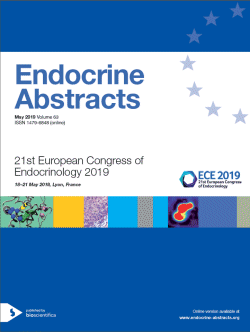Searchable abstracts of presentations at key conferences in endocrinology

21st European Congress of Endocrinology
Lyon,
France
18 May 2019 - 21 May 2019
18-21 May 2019, Lyon, France



